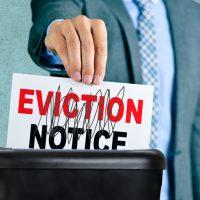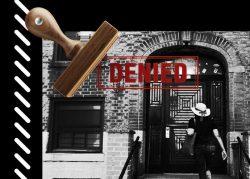State lawmakers today revealed the details of how the state will dole out New York’s $1.3 billion in rent relief.
A newly amended bill aims to meet the federal requirements for the rent-relief program, which include means-testing and priority for tenants who demonstrate housing instability or risk of homelessness.
Landlords could receive rent relief for as much as a year of rental arrears — plus three additional months, if funds are available — but it’s unclear when checks will start going out.
Assuming both houses of the legislature pass the bill and Gov. Andrew Cuomo signs it, tenants — as well as landlords and nonprofits applying on their behalf — would be able to apply for funds as early as March 1, according to the bill.
The legislation, sponsored by Sen. Brian Kavanagh and Assembly member Steven Cymbrowitz, will roll over any unused funds from the state’s initial rent relief program. That program has still not spent $60 million of its $100 million allocation.
Read more


Kavanagh said the new bill seeks to “smooth out” some of the obstacles faced by the earlier program. It streamlines the documentation process and broadens eligibility requirements.
The senator noted that the bill does not wipe out rental arrears.
“This bill does not purport to cancel rent, this bill pays the rent. That has been my approach since we crafted the first version in March and revised it over the summer,” said Kavanagh. “Now that there is federal money, my intent is to pay the rental arrears as quickly as possible.”
Tenants who can document Covid-related financial hardship and whose household income is below 80 percent of the area median income would be eligible, even if undocumented.
The program would prioritize applicants whose income is below 50 percent of AMI and those experiencing long-term unemployment, as well as mobile home tenants, victims of domestic violence or those with pending eviction cases. Tenants who apply jointly with their landlord will similarly skip to the front of the line, to streamline the process.
Advocates for landlords mostly welcomed news of the bill, but had reservations about a provision pausing holdover evictions while a rent-relief application is in process.
Ricci said he objected to language because it lacks an exception for evicting tenants who are a hazard to others. The state’s residential eviction ban and pending commercial eviction ban both have such exceptions.
Kavanagh said the provision aims to ensure that landlords don’t evict tenants — especially those with rental arrears and no lease — while they are applying for relief. He said he is open to adjusting that language, however.
Overall, Ricci said, the bill is consistent with the federal government’s guidelines, and he urged lawmakers to distribute the relief as quickly as possible.
“The goal here is to get the money out the door so people can pay rent, and owners can pay their bills,” said Ricci. “There’s a lot of people who need help on both sides.”
Although the bill did not substantially depart from the federal guidelines set forth in December, Jay Martin, executive director of the Community Housing Improvement Program, hailed the amended bill as the end of the campaign to cancel rent.
“We’ve been advocating that the best way to help renters is to get relief for debt they have accumulated through no fault of their own,” the landlord representative said. “This proves that canceling rent is not a viable solution.”
Tenant advocates who have pushed for that policy were unimpressed with the rent relief program. Cea Weaver, who leads the Housing Justice for All coalition, said that asking tenants to apply for relief, rather than forgiving rent debt and requiring landlords to apply for help, is “not an appropriate response to the crisis at hand.”
Landlords and tenants alike have pointed to deficiencies in the state’s first attempt at means-tested rent-relief, which saw more than half of applicants rejected. Paperwork has been a hurdle for the state’s eviction ban as well. Tenants seeking to delay evictions have filed fewer than 2,300 hardship declaration forms, Law360 reported, which Weaver said makes it clear that landlords, not tenants, should apply for relief.
“While we have long advocated that rent forgiveness must come with financial support to real estate to pay the back rent, it is a stronger and a better approach for landlords to apply for aid directly to maintain their properties while tenants receive a universal benefit to clear the back rent,” said Weaver.
